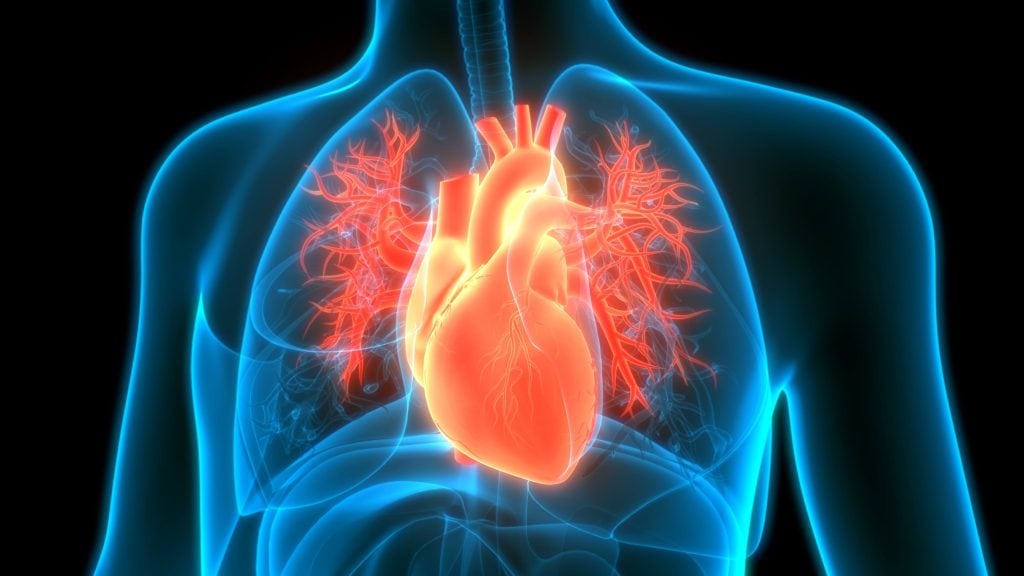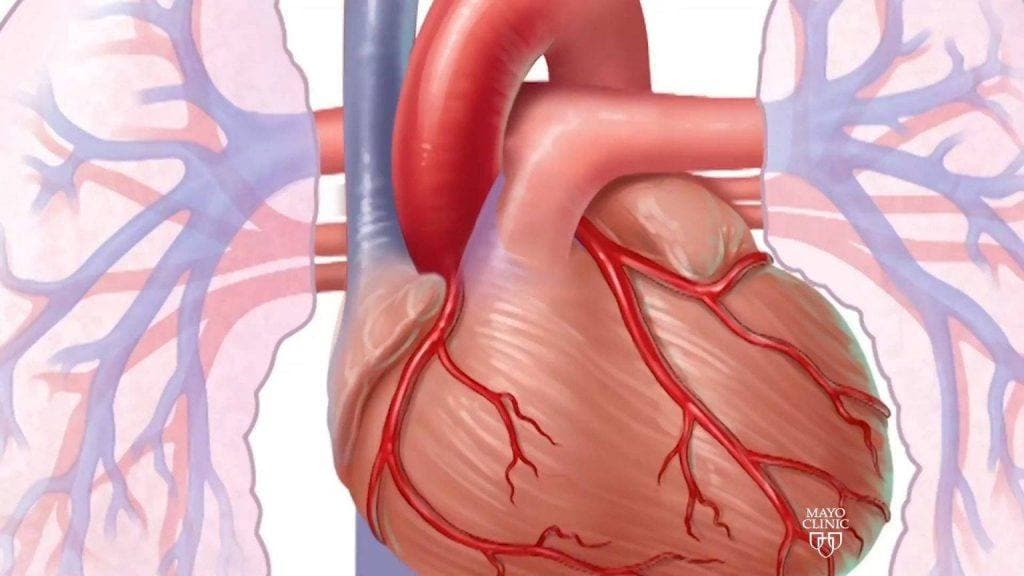Overview
Dilated cardiomyopathy is a type of heart muscle disease that causes the heart chambers (ventricles) to thin and stretch, growing larger. It typically starts in the heart's main pumping chamber (left ventricle). Dilated cardiomyopathy makes it harder for the heart to pump blood to the rest of the body.

Dilated cardiomyopathy
Dilated cardiomyopathy causes the chambers of the heart to grow larger. Untreated, dilated cardiomyopathy can lead to heart failure.
Symptoms of dilated cardiomyopathy — such as fatigue and shortness of breath — can mimic other health conditions. A person with dilated cardiomyopathy might not notice any symptoms at first. But dilated cardiomyopathy can become life-threatening. It's a common cause of heart failure.
Dilated cardiomyopathy is more common in men than women. Treatment of dilated cardiomyopathy may include medications or surgery to implant a medical device that controls the heartbeat or helps the heart pump blood. Sometimes, a heart transplant is needed.
Symptoms
Some people with dilated cardiomyopathy don't have any signs or symptoms in the early stages of the disease.
Signs and symptoms of dilated cardiomyopathy may include:
- Fatigue
- Shortness of breath (dyspnea) during activity or while lying down
- Reduced ability to exercise
- Swelling (edema) in the legs, ankles, feet or belly (abdomen)
- Chest pain or discomfort
- Fast, fluttering or pounding heartbeat (palpitations)
When to see a doctor
If you are short of breath or have other symptoms of dilated cardiomyopathy, see your health care provider as soon as possible. Call 911 or your local emergency number if you have chest pain that lasts more than a few minutes or have severe difficulty breathing.
If a family member has dilated cardiomyopathy, talk to your health care provider. Some types of dilated cardiomyopathy run in families (are inherited). Genetic testing may be recommended.
Causes
It may be difficult to determine the cause of dilated cardiomyopathy. However, many things can cause the left ventricle to dilate and weaken, including:
- Certain infections
- Complications of late-stage pregnancy
- Diabetes
- Excessive iron in the heart and other organs (hemochromatosis)
- Heart rhythm problems (arrhythmias)
- High blood pressure (hypertension)
- Obesity
- Heart valve disease, such as mitral valve or aortic valve regurgitation
Other possible causes of dilated cardiomyopathy include:
- Alcohol misuse
- Exposure to toxins, such as lead, mercury and cobalt
- Use of certain cancer medications
- Use of illegal drugs, such as cocaine or amphetamines
Risk factors
Risk factors for dilated cardiomyopathy include:
- Damage to the heart muscle from certain diseases, such as hemochromatosis
- Family history of dilated cardiomyopathy, heart failure or sudden cardiac arrest
- Heart valve disease
- Inflammation of the heart muscle from immune system disorders, such as lupus
- Long-term excessive alcohol or illegal drug use
- Long-term high blood pressure
- Neuromuscular disorders, such as muscular dystrophy
Complications
Complications of dilated cardiomyopathy include:
- Heart failure. The heart can't pump enough blood to meet the body's needs. Untreated, heart failure can be life-threatening.
- Leaky heart valves (heart valve regurgitation). Cardiomyopathy may make it harder for heart valves to close. Blood may leak backward through a heart valve.
- Irregular heartbeats (arrhythmias). Changes in the heart's size and shape can interfere with the heart's rhythm.
- Sudden cardiac arrest. Dilated cardiomyopathy can cause the heart to suddenly stop beating.
- Blood clots. Pooling of blood in the left lower heart chamber can lead to blood clots. If clots enter the bloodstream, they can block blood flow to other organs, including the heart and brain. Blood clots can cause stroke, heart attack or damage to other organs. Arrhythmias can also cause blood clots.
Prevention
Healthy lifestyle habits can help prevent or reduce complications of dilated cardiomyopathy. Try these heart-smart strategies:
- Avoid or limit alcohol.
- Don't smoke.
- Don't use cocaine or other illegal drugs.
- Eat a healthy diet that is low in salt (sodium).
- Get enough sleep and rest.
- Get regular exercise.
- Maintain a healthy weight.
- Manage stress.


